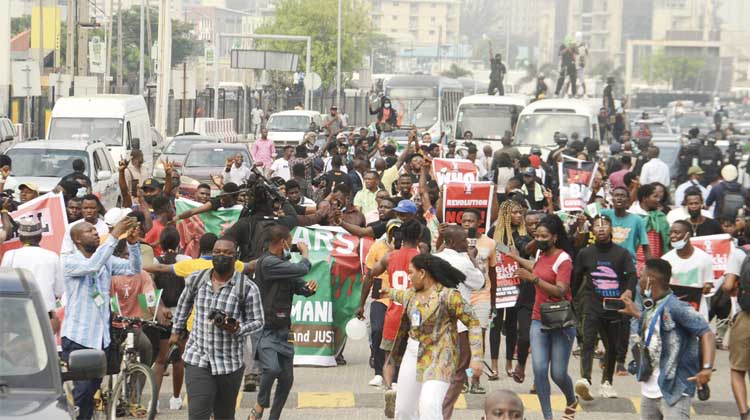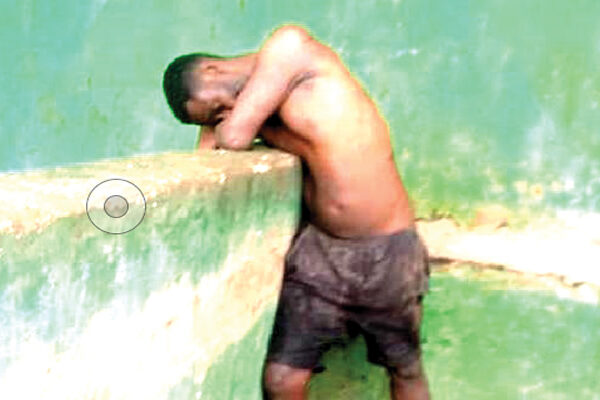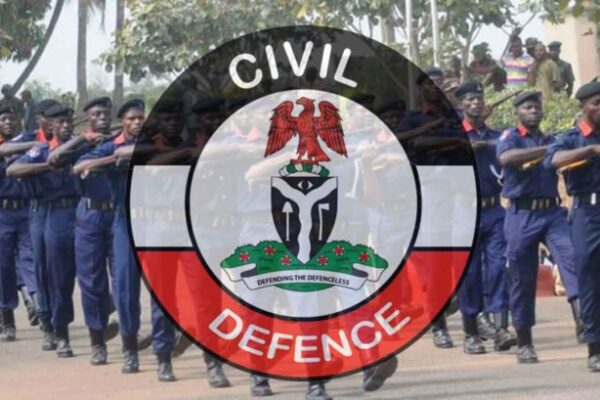Transparency in Question: Group Challenges Official Count of #EndSARS Protest Victims
Global Rights, a prominent not-for-profit organization, has fervently called for a comprehensive investigation and a strict regime of accountability regarding the tragic events of 2020, when over 246 Nigerians lost their lives during the #EndSARS protests. Expressing deep disappointment, the organization highlighted the insufficient efforts of a few states in implementing the recommendations of the Panels of Inquiries, which were established to examine alleged human rights violations against Nigerians.
The group pointed out that the authorities appeared to be paying mere lip service to the legitimate demands of the nation’s youth, even after the harrowing incidents of 2020. Abiodun Baiyewu, the Executive Director of Global Rights, conveyed these concerns in a statement issued on a Friday.
Global Rights shed light on the disturbing fact that approximately 352 individuals faced arrests in connection with their participation in the peaceful demonstrations. Furthermore, the government had taken the controversial step of extra-judicially freezing the bank accounts of individuals and organizations that had extended financial support to the #ENDSARS movement.
The heart of a functioning democracy is trust, a trust that those elected by the people will diligently fulfill their roles in governance as mandated by the Constitution. However, Nigeria had been operating at a bare minimum for a considerable period, and the tragic events of October 20, 2020, exacerbated this deficit.
In order for Nigeria to regain its stability and fulfill its aspiration of becoming a state characterized by peace and justice, it is imperative to hold accountable those responsible for the extrajudicial loss of lives during the #EndSARS protests. Furthermore, the government must reconcile with its responsibility of safeguarding the health and independence of its civic space.
The events leading to the senseless killing of unarmed protesters on October 20, 2020, while they knelt and held the Nigerian flag, must remain vivid in the memory of all citizens. The demand for accountability should not be forgotten amidst the complexities of progress. Moving forward is important, but the nation must never forget, even after justice is served.
In October 2020, Nigerians, deeply dissatisfied with their government’s conduct and the actions of its institutions, took to the streets to voice their grievances, primarily against the Special Anti-Robbery Squad (SARS). The movement, initiated by young Nigerians through the #ENDSARS hashtag on social media, swiftly transitioned into physical protests in major cities across Nigeria and beyond.
The protesters articulated their demands clearly: the immediate release of all detained protesters, justice for victims of police brutality, compensation for their families, the establishment of an independent body for the oversight of investigations and prosecutions of police misconduct, psychological evaluations and retraining for disbanded SARS operatives, increased police salaries, and proper compensation for their role in protecting Nigerian citizens’ lives and property.
While the protests remained predominantly peaceful, they took a sinister turn when sponsored counter-protesters and thugs targeted peaceful demonstrators, causing chaos and successfully disrupting the protests.
The darkest moment unfolded on October 20, 2020, when Nigerian military personnel, armed and without warning, opened fire on unarmed protesters at the Lekki Toll Gate in Lagos State. This horrifying act resulted in the loss of at least 123 lives and left more than 32 individuals wounded.
The toll of this period was devastating, with at least 246 lives lost and approximately 352 arrests made in connection with the peaceful demonstrations. Additionally, the government extra-judicially froze the bank accounts of several individuals and organizations that had supported the #ENDSARS movement.
Fast forward three years, and the pursuit of accountability remains elusive. Frustration stemming from the sluggish pace of justice has transformed into a cloud of despondency. Law enforcement brutality and extrajudicial killings persist, and there has been no reckoning for the events of October 20, 2020.
In July 2023, a startling revelation emerged from the Lagos State Procurement agency. It disclosed that the Lagos State Government had discreetly engaged a private firm to clandestinely bury 103 bodies identified as “EndSARS victims,” a fact initially admitted by the state government and later vehemently denied.
Judicial panels of inquiries were established across 30 states of the Federation to scrutinize alleged human rights abuses committed by the defunct SARS and other police units. These panels received around 2,888 petitions. While most of the panels completed their investigations and made recommendations to the government, many of the reports were not made public.
In cases where they were released, the regrettable lack of political will to implement the recommendations has been glaring. Only a handful of states, such as Lagos, Ekiti, and the Federal Capital Territory (FCT), have taken steps to compensate some of the victims in line with the panels’ recommendations, as highlighted by Global Rights.












